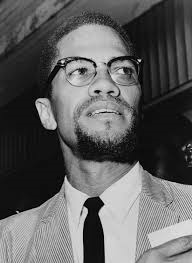Joe Frazier defeated Jimmy Ellis by knockout in the second round at Madison Square Garden, New York, to become the undisputed world heavyweight boxing champion. Frazier’s victory solidified his place in boxing history and set the stage for his legendary bouts with Muhammad Ali.

Malcolm X delivered his speech “Not Just an American Problem, But a World Problem” at the Corn Hill Methodist Church in Rochester, New York. In one of his final public addresses before his assassination, Malcolm X framed the struggle for Black civil rights in the U.S. as part of a global human rights movement. He emphasized the need for international solidarity and urged African Americans to bring their grievances before the United Nations.
LeVar Burton was born in Landstuhl, Germany. He rose to prominence for his portrayal of Kunta Kinte in the groundbreaking television miniseries Roots, based on Alex Haley’s novel. Burton later became a cultural icon in the 1980s and 1990s for his role as Lt. Commander Geordi La Forge in Star Trek: The Next Generation. His work has had a lasting impact on representation in media and science fiction.
The New York City Council passed a groundbreaking bill prohibiting racial discrimination in city-assisted housing developments. This legislation marked a significant step forward in the fight for fair housing and civil rights, setting a precedent for other cities to follow in challenging segregation and promoting racial equality in public housing.
Blues legend Bessie Smith made her first recording, “Down Hearted Blues,” for Columbia Records. The song became an instant hit, selling over 800,000 copies in its first year. Smith’s powerful voice and emotive style helped shape the classic blues genre and paved the way for future generations of Black female vocalists.
© 2026 KnowThyHistory.com. Know Thy History